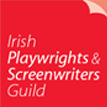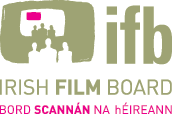The IPSG would like to bring the Google Book Settlement to the attention of Irish authors.
In 2004 Google began digitising all the books in the University of Michigan library. Shortly afterwards the Authors Guild, the Association of American Publishers, and a group of authors and publishers filed a class-action lawsuit for copyright infringement.
In November 2008 those representatives reached an out-of-court settlement with Google that would -- if approved by federal court -- allow Google to publish online out-of-print books for reading, sales, institutional licensing, ad sales, and other publishing exploitations.
The settlement gave the class-action attorneys $30 million, a new governing rights body called the Book Rights Registry (BRR) $35 million, and set aside $45 million for writers infringed up to now. The BRR will act as the agency that will forward payments of 63 per cent of revenue earned by Google to authors for future use of their works. You can read the Authors Guild's statement online about the settlement.
This deal remains subject to a final fairness hearing, which is scheduled for June 11, 2009.
Last month a conference organised by the Kernochan Centre for Law, Media and the Arts discussed the ramifications of the deal, and raised concerns. These issues are never straightforward. Wired has pointed out that the law school is funded in part by Microsoft, one of Google's oldest competitors.
At this point Google has digitised over seven million books, and now has the non-exclusive right to digitise every book published before January 5, 2009. Google will have to negotiate directly with publishers for rights to all works published after January 5th, 2009.
Authors who want their books excluded from the settlement must formally opt-out by May 5, 2009.
Authors who wish to agree to the terms of the settlement must claim every edition of their book(s) associated with their name that has been published in the USA. They will receive an once-off payment of at least $60 per book from Google to cover any infringement of their copyright so far. Further payment for online use of the texts will either be charged as a flat fee, or writers can ask Google to calculate an "optimal price" for their book based on demand.
The Irish Times published a story on the matter last week.
At a recent seminar, Samantha Holman, chief executive of the Irish Copyright Licensing Agency, was worred that many Irish writers were unaware of the terms of the Google Book Settlement.
Although the settlement was for a class action suit in the US, Holman notes that Google was required to notify copyright groups everywhere in the world, and says the settlement notice warned global copyright holders "to assume that you own a US copyright interest in your book". Holman says authors can probably expect a similar settlement with Google in future in countries and territories outside the US and cautioned authors against assuming the company might find little commercial value in the project.
"Google has been very successful so far, and there's no reason to think they won't be very successful at this," she says.
Holman notes that some Irish writers have even found their doctoral thesis listed on the Google settlement site and so she encourages anyone who has ever written anything to search under their name for any works. The settlement "is not the perfect solution by any means. But it is the solution being proposed," she told authors. "You have to start reading your contracts carefully."
Finally, this week Google
announced a deal with Sony that will make 500,000 public domain titles available for download from
Google Book Search in a format that is compatible with Sony's
ebook Reader.























